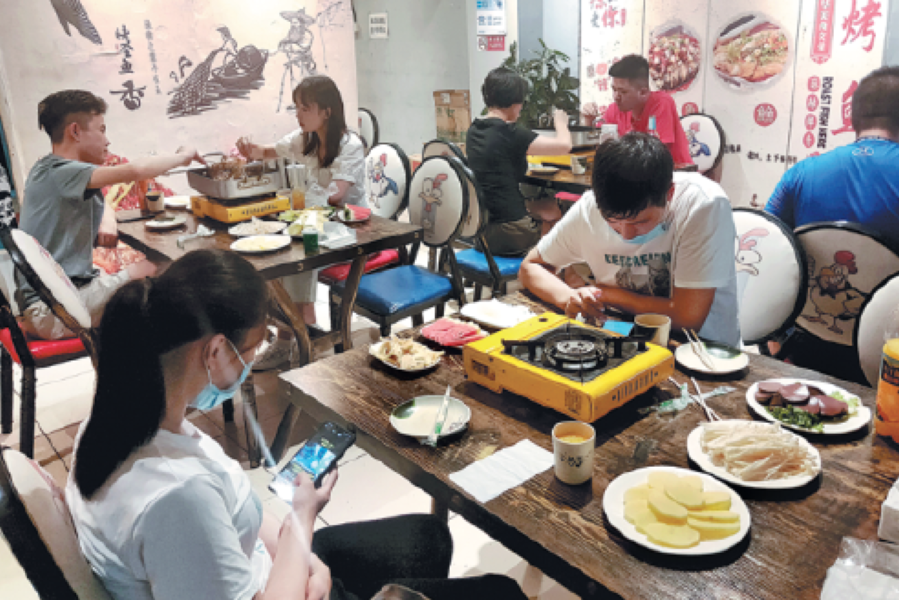Small businesses keep their hopes high

Fish restaurant

To remain in business, many eateries began offering takeout services during the pandemic, but for Zhang Qiang, who runs a roast fish restaurant in Beijing, this did not appear to be a good idea.
At Zhang's Lame'aini restaurant in Chaoyang district, diners spend an hour or two chatting beside an oblong pot containing fish boiling over a fire. Vegetables, and possibly noodles, are added later.
"The secret of enjoying roast fish is to eat it immediately after it is cooked, and to share the experience with family and friends in a relaxed atmosphere," Zhang said. "If you eat it from a doggy box at home, it will feel totally different."
Zhang founded the restaurant in the Caochangdi art area in 2018. Half the customers are white-collar workers in the area.
During peak of the pandemic, many workers did not return to the area and the gates were closed to outsiders. Lame'aini, which usually resumed business for the last two days of the Spring Festival holiday, closed from late January until March.
"For two months, we had no customers and no income, but had to pay the rent. All our food perished," Zhang said, adding that most restaurants stocked up before the holiday in case wholesale markets selling farm produce were closed.
In early May, dine-in services resumed in the area. Before this, Zhang had to rely on takeouts, which he said did not work out well. He received only three to four orders a day, bringing in a few hundred yuan, compared with 3,000 yuan to 5,000 yuan in normal times.
Income gradually improved to 1,000 yuan to 2,000 yuan a day in May and early last month, until a new cluster of infections was reported in Beijing on June 11, resulting in Zhang's earnings plummeting again.
Before starting his own business, he worked for several hotels in the capital for eight years after graduating from a culinary school. His first restaurant in the city went bankrupt, and he is now pinning his hopes on roast fish.
"However, I don't think this business will survive if it keeps losing money," he said.
Occupying 70 square meters, Lame'aini has six tables and can accommodate a maximum of 50 diners.
Disinfection and temperature checks are carried out every day. The plates and chopsticks have been replaced by plastic ones to ease customers' concerns. Once every week or two, workers from the local authority arrive to see if the business is following pandemic control instructions.
The rent, which is Zhang's biggest outlay, is 120,000 yuan to 130,000 yuan a year. Late last month, food prices rose by up to 10 percent, with supply shortages occasionally reported, he said. In addition to himself and his wife, he employs a worker who earns 40,000 yuan to 50,000 yuan annually.
"The losses are still tolerable, but if they worsen, we will have to close the business or transfer it," he said.
"The catering market in China is huge, but also very competitive. You have to develop your own ideas and products to stand out."
He said business gradually recovered this month, as the outbreak in the city was contained.




































